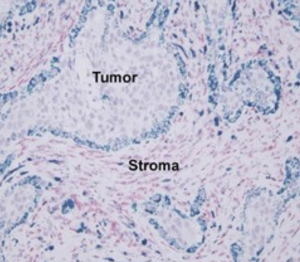
Researchers have uncovered a crucial molecular player in the aggressiveness of anaplastic thyroid cancer: the protein tenascin-C. Their study, published in Endocrinology, reveals that TNC enhances Wnt signaling pathways, promoting tumor growth and metastasis. The results could lead to better targeted therapeutics for thyroid cancer.
Anaplastic thyroid cancer is among the most lethal endocrine malignancies, characterized by rapid progression and limited treatment options. Understanding the molecular mechanisms driving its aggressive behavior is crucial for developing effective therapies.

Researchers Vivian Weiss, Ethan Lee, and their labs set out to find the drivers of aggressive thyroid cancer and if it is possible to predict who will develop the aggressive disease. Weiss and Lee, both of whom have appointments in the Department of Cell and Developmental Biology, employed a combination of lab-based and animal models, alongside analyses of RNA-sequencing from three multi-institutional thyroid cancer patient groups. They observed a significant increase in TNC expression within cancer cells, particularly along the invasive edge of tumors, near fibroblasts that produce Wnt ligands. This positioning suggests a critical interaction in the tumor microenvironment.

Further experiments demonstrated that “TNC can bind Wnt-2 and potentiate Wnt signaling,” the team reported, highlighting how this pathway contributes to increased tumor burden, invasion, and metastasis in mouse models of thyroid cancer.
Heather Hartmann, the first author of the study, emphasized the potential clinical implications of these findings. “TNC can be utilized in the clinical lab as a biomarker for aggressive disease or metastasis,” she said. This insight opens avenues for improved patient stratification and targeted therapeutic interventions. Hartmann is a doctoral student in the Weiss and Lee labs.
Looking ahead, the teams hope their findings will inspire other research that will lead to the development of novel biomarkers and targeted therapeutics for thyroid cancer. “We hope that other researchers will build on this work by further exploring the relationship between TNC and Wnt,” Hartmann said.
Go deeper
The paper “Tenascin-C Potentiates Wnt Signaling in Thyroid Cancer” was published in Endocrinology in March 2025.
Funding
This work was supported by the National Institutes of Health, the National Cancer Institute, and the American Cancer Society.
School of Medicine Basic Sciences shared resources
This research made use of the Vanderbilt Cell Imaging Shared Resource.